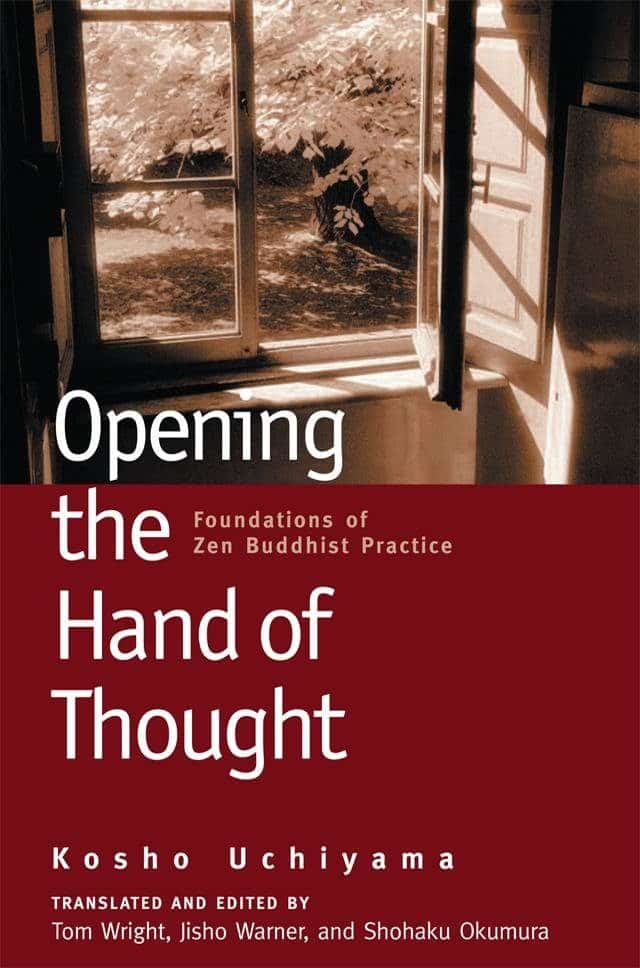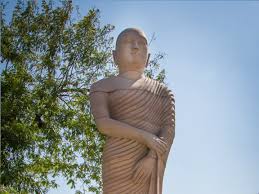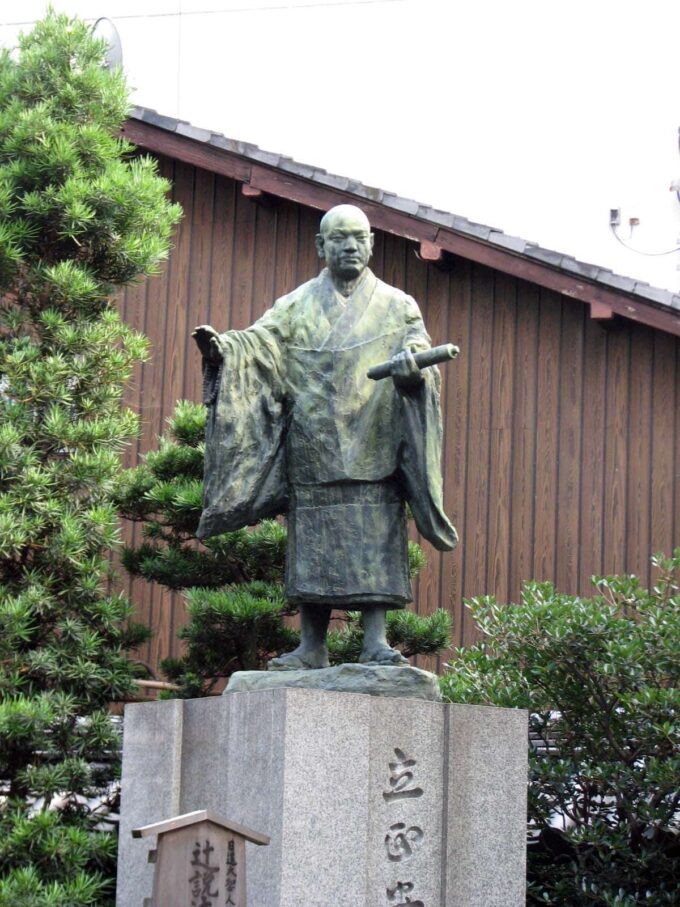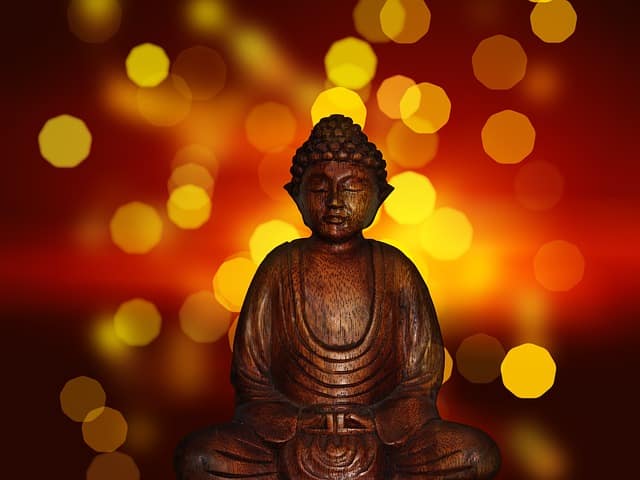*Excerpt from the book Opening the Hand of Thought by Kosho Uchiyama
One day at Antaiji, I received a visit from a fifty-year-old American businessman who was the president of his own company. I speak only Japanese, but since he brought along an excellent interpreter, we had no trouble communicating. He said this to me: “I have plenty of money and a wonderful family, but for some reason that I can’t explain, about ten years ago I began to feel a terrible loneliness in my life. So I began studying Judaism, though I was unable to find any contentment in it. Then I studied Christianity, but I was unable to find any satisfaction there, either.
Then, a few years ago, I heard a lecture on Zen Buddhism and began to feel that in Zen I might be able to find something that would satisfy me, and I’ve been studying Zen ever since. I’ve come to Japan to study Zen more deeply, and I wonder what you think about this feeling of loneliness I have.” In reply to his very sincere statement and question, I said: “Did it ever occur to you that this feeling of dissatisfaction or emptiness might be caused by your searching for the value, the basis, or recognition of your existence only in things outside yourself, such as in your property, or in work, or in your reputation? This empty feeling of yours probably comes up because you haven’t yet found this basis within the reality of your own true self. In other words, you feel a hollowness in your life because you have always lived only in relation to other people and things, and haven’t been living out your true self.”
My response seemed to fit his idea of himself exactly, and being moved by this, he immediately agreed with me. “It’s just as you say. My day-to-day life seems to be filled with living in relation to things outside of myself. I’m sure this has to be why I feel such an emptiness inside. But…well, what should I do about it?” I replied: “You will never be able to resolve the uneasiness in your life by drifting around seeking things outside yourself. It is crucial to live out the truth of the self, which is self-living the reality of universal self. Zazen puts this into actual practice.
My late teacher Kōdō Sawaki Roshi used to say, ‘Zazen is the self-doing itself by itself.’ ” He nodded as if my words had been just what he had expected and went on, “That is exactly what I thought zazen was.
I would very much like your permission to do zazen here at Antaiji.” My replies to his questions were not just my personal opinions.
I merely told him what has been recorded in Buddhist sutras since ancient times. In the Sutt-nipata, one of the oldest Buddhist sutras, it is written, “To depend on others is to be unstable.” And in the equally old Dhammapada is the passage, “The foundation of the self is only the self.” This man was most unusual in his ability to accept these simple but very important passages with such humility and readiness. In most cases, much more explanation is necessary before a person can accept such ideas.
What is this thing we casually call “I”? It seems that this “I” stands out in relief only in opposition to or in encountering some “other.”
For example, a man may see himself as something called a “husband” that exists in relation to his “wife” and a “parent” with respect to his “child.” At work, he may feel that his identity as a “subordinate” is determined by his relation to his “superiors.” Furthermore, he may regard himself as a “salesman” with respect to What is this thing we casually call “I”? It seems that this “I” stands out in relief only in opposition to or in encountering some “other.”
For example, a man may see himself as something called a “husband” that exists in relation to his “wife” and a “parent” with respect to his “child.” At work, he may feel that his identity as a “subordinate” is determined by his relation to his “superiors.” Furthermore, he may regard himself as a “salesman” with respect to his “customers,” a “competitor” with respect to others in the same line of business, a “poor man” with respect to a “rich one,” unable to buy something he imagines as a good thing, a “loser” in contrast to a “winner,” “powerless” in the face of society, and on and on, endlessly. It would be a wonder if a man whose awareness of himself was based on comparisons like these didn’t become overwhelmed with feelings of inferiority.
If somehow he was able to avoid being crushed by an inferiority complex, it’s easy to imagine him becoming consumed with striving after everything he perceives himself to lack.
Alternatively, a person with a lot of money or power might imagine she is superior to others around her, better and more important than everyone else. In actuality, all these people are in the same situation. They all conceive of “I” as something that is determined from the outside, as something defined in opposition to other people and things. Essentially, there isn’t a bit of difference between them. There can be no doubt that ordinarily, we live like this, being conscious of our “self” as something fixed from the outside and in opposition to others. Yet, if we think that only this is our “self,” and if we live only by balancing this “self,” comparing this “self” with other people and things, then I would have to say that we have lost sight of our self as the reality of life.
Jean-Jacques Rousseau wrote in Emile that every person, regardless of the wealth or status he may be heir to, is born naked and poor, and when he dies, must die naked and poor. This is certain, and yet, in between birth and death, people wear all sorts of clothes. One wears the splendid and gorgeous robes of a queen, while others spend their whole life wearing poor, tattered rags. Some people wear army uniforms; others, prison clothes; and others, monks’ robes.
Of course, our “clothes” aren’t made only of cloth; there are also the clothes of class, status, fame, and wealth, all the clothes of our busy roles and cherished identities. There comes a time when we are stripped naked of all these things.
There are also clothes called “handsome man” or “smart woman.” Yet, no matter how beautiful a person is, there will eventually come the time when he or she must change clothes and don the dress of an “old person.” Likewise, in the end, the genius may very well have to change into the clothes called senility. There are also the clothes of “superiority complex,” “inferiority complex,” “happiness,” and “unhappiness,” as well as those of belief, race, and nation. We change from one system of thought to the next, but when it is time to die, we have to take off even our clothes of racial distinction and die as completely naked selves.
Even though these are just outward trappings we wear in the interval between naked birth and naked death, almost all people are taken in by them.
They assume that the entire problem of living is, out of all these possibilities, which nice clothes will they wear? I wonder if most people ever ask the question “What is the naked self?” While we are always undoubtedly living out some “self,” usually we are not, in fact, living out the reality of our naked self, our true self. We concern ourselves only with the clothes we wear in our lives—that is, the self that is determined from outside and that lies in opposition to others. We seem to take it for granted that this is all there is to life, that “clothes make the man.”
As long as this is so, it is not at all strange that people should find a hollowness in their lives. Whether they suffer from an inferiority complex, burn with a spirit of competition, or hold on to some idea of superiority, it is only natural that they all feel the same dull lack in their lives. To rely on others in order to know yourself is to be unstable. Of course, this does not mean you should live in some kind of isolation from others. To be isolated is just as unnatural and unstable as to live always in reference to others. Your true self is beyond either relying on others or avoiding them in order to know who you are. We can’t find true peace of mind until we live out the reality of the life of the self since the foundation of the self is only the self. That is the universal self that I have been pursuing throughout my life.




